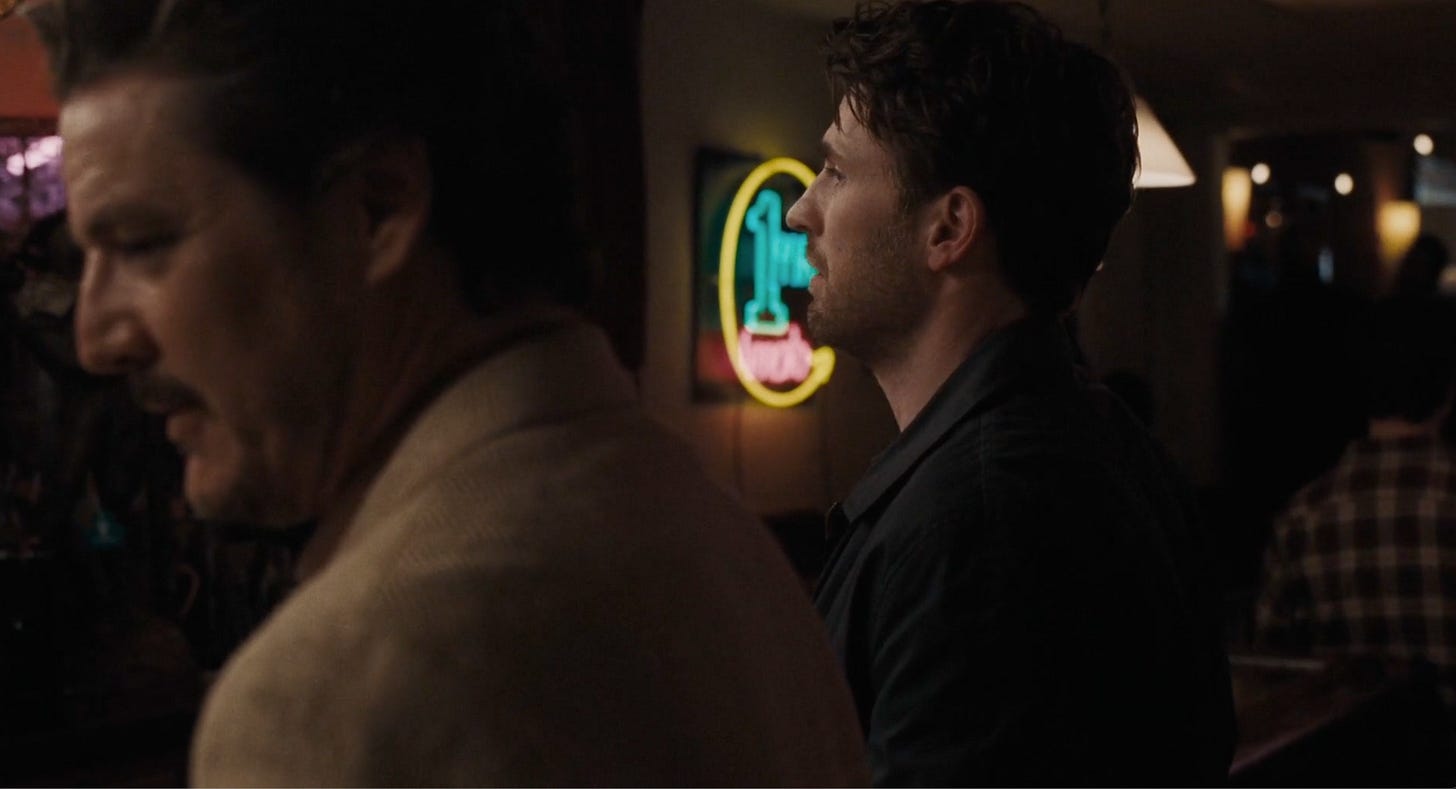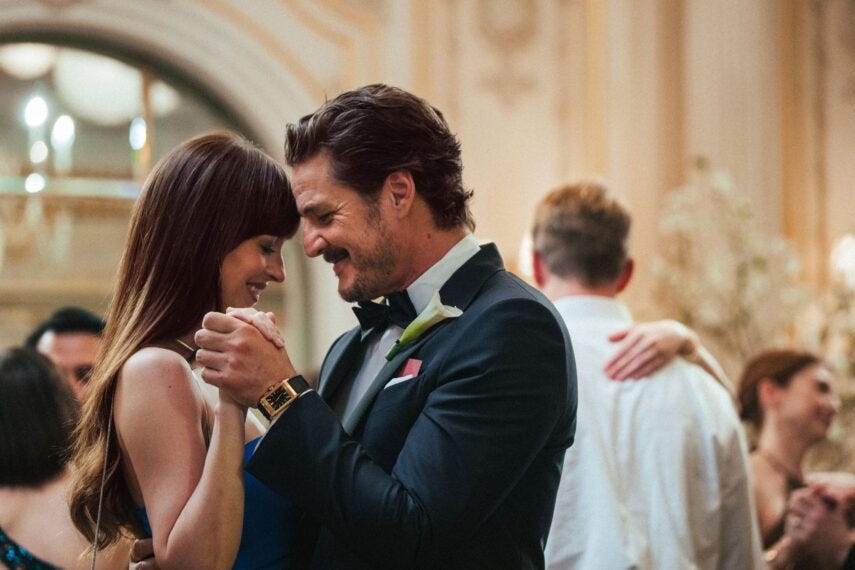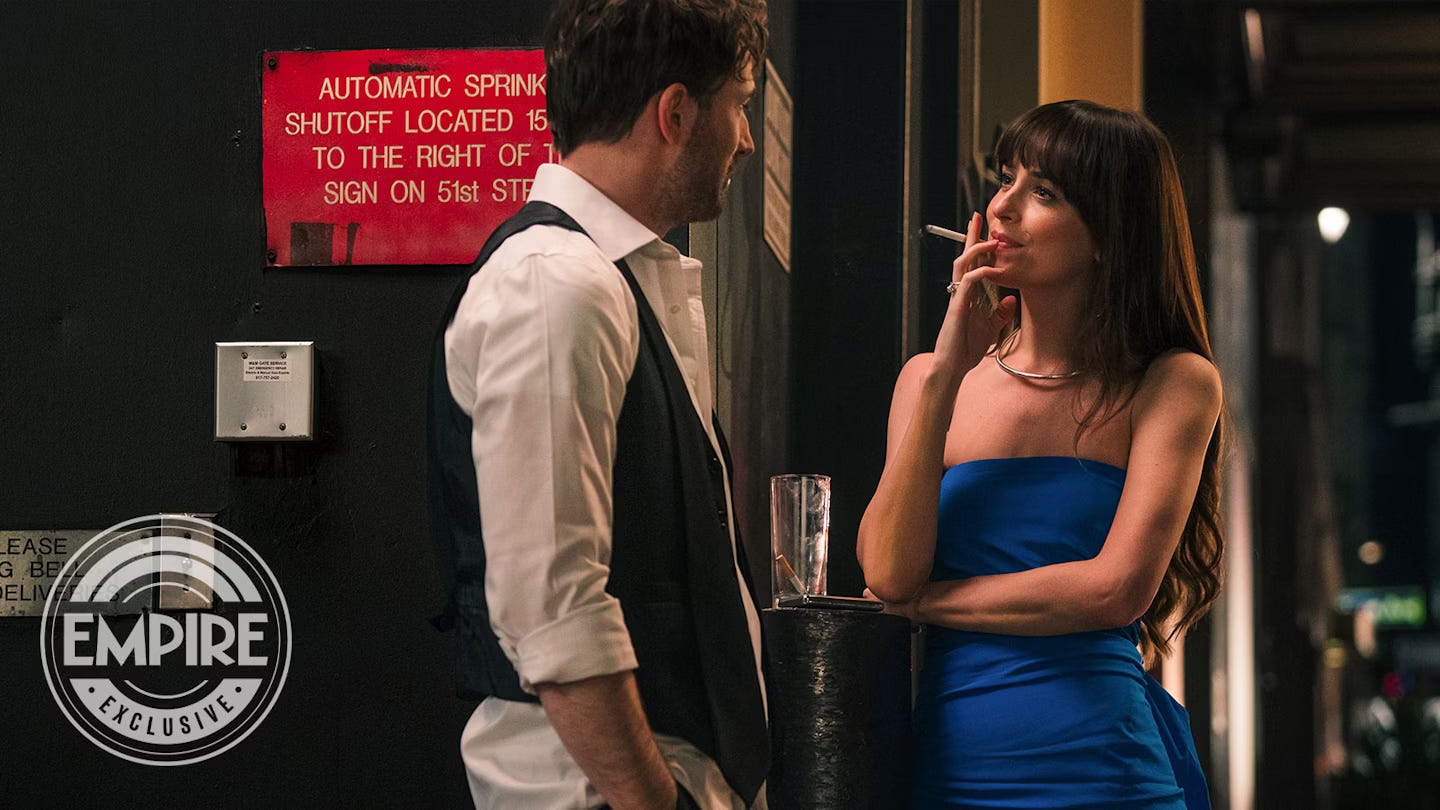What Materialists very nearly said about money and dating
And what my dates taught me about it
There’s a moment in Celine Song’s latest movie, Materialists, when you think a clash of class and love is about to be discussed out there in the open. Maybe not quite in the Prince and the Pauper way, but when private equity heartthrob and current boyfriend Harry and broke ex-boyfriend John are left alone in a bar, I was prepped for this year’s Past Lives moment, something like that bar scene, a quiet but profound reflection about the complexities of love and connection in the digital age.
Instead, the scene cuts without a word or a glance, which, for a movie that so often speaks loudly about how money and class are a constant choice to make in dating, suddenly, when it could’ve said something much more profound, had nothing to say.
The sense of absence in that moment really does mirror real life. Is there a more notoriously tricky thing to discuss in dating than money, to the point that many often try to avoid discussing it entirely? The debate on who splits the bill is so often a starting point of agreement or difference. Completely valid wandering thoughts about the person’s ability to support a family or buy a house together bounce around in people’s heads.
Materialists is a fable about how these concerns, as immaterial or as valid as they might be, should not be mistaken for love. But what it manages to avoid tackling directly is how so much of our understanding of love is not separate from, but in fact entangled with class, money, and inherited traditions about what relationships should look like. Most of us find solace and comfort in many of those traditional ideas of love, whether it’s about gender roles, romantic gestures or behavioural codes. Even many progressives, who also grew up with Disney notions of romance, often fall back on this. In practice, most of these traditions reinforce class structures.
It’s a reality I have often found myself in. I only started dating at the relatively ancient age of 26, so I had to accelerate my understanding of what I wanted out of that romantic minefield. Cue devastatingly quick first relationships and first loves and first heartbreaks. Before I even knew it, I had turned 34, trying to pursue a creative career in an unrelenting non-creative economy, trying to be a journalist while balancing bills, rent and loans.
My attitude to dating and the dating scene around me also changed from something where nothing seemed to matter more than energy, to a space which felt distinctively more serious, more adult, where, try as much as we might, finance became impossible to ignore.
We like to imagine love exists outside these pressures, but it never really does, especially when you date across class lines. Money and class shape who we are, who we date, how we love, and even how we imagine the future, whether through family pressures to find someone financially stable, or moments of connection that are missed because you speak different class-based languages and references.
I don’t straddle between the extremities that Materialists depict, but my life has seen me straddle among significant differences in privilege. One of my jobs had me dining in fancy restaurants, but coming home to under £1k in my savings account with a tax bill looming four times that amount. I’ve worked alongside privately educated colleagues in journalism, and in other spaces, my daily interactions were with people experiencing homelessness and financial hardship.
And in dating, especially at 34 when the pressures of adulthood truly hit, my straddling became like so many things that people try to deduce from an online profile - another expectation yet to unlearn.
Everyone who has a dating profile knows what it’s like to be reduced to shorthands, job titles, fashion, accents - little symbols that suggest to the person swiping who you are and where you might come from. I’ve seen people’s assumptions about me shift in real time on a date. I’ve felt myself do it to other people, too.
But, ironically, many of those same people (as well as most of our global society) are also pretty shit at actually addressing and talking about class or financial privilege, something Materialists likes to pretend is not the case during most of the film (probably because it’s a rom com - which, relax, I’m fine with).
In the real world though, there are some people who wouldn’t dream of even asking their friends how much they earn or how much they paid for their home or for a gift. Sometimes, going to a friend’s house as a kid or attending a friend’s wedding can be the biggest realisation that you guys are not from the same world.
Many times over the years, I have stood at that bar and been that conversation we never saw between Harry and John. I’ve had to grow from romantic delusion to a place of understanding that it is impossible, even to those who profess the opposite, not to have some level of expectation. That doesn’t mean, of course, that we can’t fight against that expectation, or grow to love someone irrespective of that. But we do need to challenge that part of us which finds comfort in an expectation of romantic tradition, and what comes with that.
Materialists cuts away before that notion can be challenged. But in real life, that silence never truly lasts. Sooner or later, love and money find their way into the same conversation - unless you date strictly within your own class (which, to be fair, many do). We don’t ever really choose between love and materialism; we learn how material our idea of love already is, and then decide how much we’re willing to challenge it.



